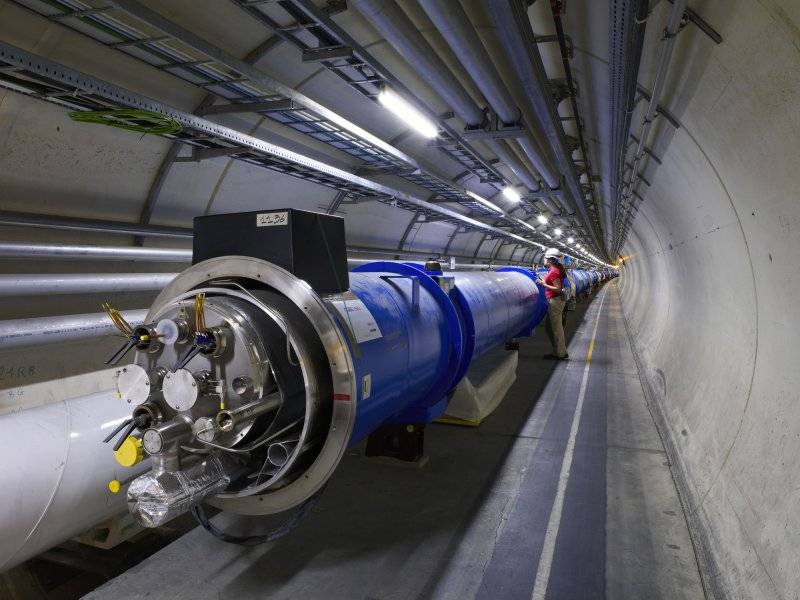Delta4Embassy
Gold Member
Thanks for that. And not making a black hole that ate the planet. 
CERN s LHCb experiment reports observation of exotic pentaquark particles
"Today, the LHCb experiment at CERN's Large Hadron Collider has reported the discovery of a class of particles known as pentaquarks. The collaboration has submitted a paper reporting these findings to the journal Physical Review Letters.
"The pentaquark is not just any new particle," said LHCb spokesperson Guy Wilkinson. "It represents a way to aggregate quarks, namely the fundamental constituents of ordinary protons and neutrons, in a pattern that has never been observed before in over fifty years of experimental searches. Studying its properties may allow us to understand better how ordinary matter, the protons and neutrons from which we're all made, is constituted."
Our understanding of the structure of matter was revolutionized in 1964 when American physicist, Murray Gell-Mann, proposed that a category of particles known as baryons, which includes protons and neutrons, are comprised of three fractionally charged objects called quarks, and that another category, mesons, are formed of quark-antiquark pairs. Gell-Mann was awarded the Nobel Prize in physics for this work in 1969. This quark model also allows the existence of other quark composite states, such as pentaquarks composed of four quarks and an antiquark. Until now, however, no conclusive evidence for pentaquarks had been seen."
CERN s LHCb experiment reports observation of exotic pentaquark particles
"Today, the LHCb experiment at CERN's Large Hadron Collider has reported the discovery of a class of particles known as pentaquarks. The collaboration has submitted a paper reporting these findings to the journal Physical Review Letters.
"The pentaquark is not just any new particle," said LHCb spokesperson Guy Wilkinson. "It represents a way to aggregate quarks, namely the fundamental constituents of ordinary protons and neutrons, in a pattern that has never been observed before in over fifty years of experimental searches. Studying its properties may allow us to understand better how ordinary matter, the protons and neutrons from which we're all made, is constituted."
Our understanding of the structure of matter was revolutionized in 1964 when American physicist, Murray Gell-Mann, proposed that a category of particles known as baryons, which includes protons and neutrons, are comprised of three fractionally charged objects called quarks, and that another category, mesons, are formed of quark-antiquark pairs. Gell-Mann was awarded the Nobel Prize in physics for this work in 1969. This quark model also allows the existence of other quark composite states, such as pentaquarks composed of four quarks and an antiquark. Until now, however, no conclusive evidence for pentaquarks had been seen."




